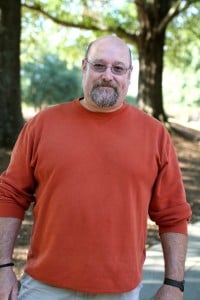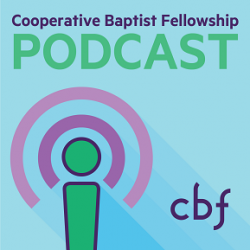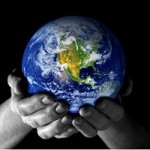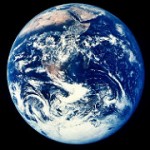By Sam Harrell
More or Less?
Every political candidate promises more. More jobs, more trade, more income, more energy.
We are habituated to everything good being about new, better and more. Even where there is a realization that we need to clean up our act — cleaner energy sources, recycling, greater efficiency — we want more and more of it. The discard pile grows and usually what is gained in efficiency is quickly outpaced by our appetite for more.

Let’s face it, no one gets elected by advocating for less, for scaling down, for conserving, for stepping down a rung on the ladder. No, our liberal democracy is obsessed with the notion that we have the right to happiness and happiness, to us, is more.
And we say we want everyone to have it. In theory at least, we want the multitude of ‘the poor’ to have access to more. To healthcare, to shelter, to jobs, to stuff. And why shouldn’t they? After all, our notion of equality means we should all have access to the same stuff and, since we’re not planning to reduce our expectations of consumption, accumulation, MORE, that means we need to make room where we are for all those ‘down there’ to join us here ‘up here.’
Ever thought about what China would look like if they had the number of cars per capita that we have?
Ever thought what it would take for folks living in Calcutta, Kinshasa or Mexico City to enjoy the same standard of living as folks in London, New York, or Los Angeles?
Get serious! It would take several earths to generate the number of resources necessary to sustain a global population at anywhere near a western level of appetite for goods, services and ‘more.’ So where does that leave us? It leaves us in a perilously precarious predicament!
Already, the Earth is groaning under the weight of our unsustainable impact. Environmental science makes use of a simple formula to demonstrate sustainability: I (Environmental Impact) = P (Population growth) x A (Affluence/consumption levels) x T (Technological efficiency).
I=PAT.
Needless to say, our negative impact on the environment continues to rise to greater heights of unsustainability due to unrestrained population growth, increasing consumption and technological efficiencies that can’t (and won’t) be expected to keep pace with our numbers or appetites.
One study shows that in order for impact to be neutralized according to a western ‘diet’ at current consumption levels and rates of technological advancement, we would need to reduce our numbers to 2.8 billion.
We are approaching 8 billion and conservative predictions are that by 2100 we will hit the 10 billion mark. Many scientists are already resigned to talking about a 6th (Anthropocene) extinction. Our own.
I’m not a fortuneteller or a futurist but I believe I can confidently state that we’re headed in the wrong direction.
I suggest we at least change directions by looking to faith and common sense for a solution. “Pray to God and tie your camel,” as the saying goes. My faith teaches that God is a God of all. Not just me, my type and my kind, but all. That includes ‘the earth and all that is in it.’
The rule I seek to follow is love of God, neighbor and self. In essence, my ‘neighbor’ extends beyond my neighborhood, my race and even my species. ‘Salvation’ in my faith system is modeled on becoming less, not more, for the sake of the other.
It’s about dying to self and finding new life in Love. It’s about descent, not ascent. About ‘falling upwards,’ and about the last being first. Commons sense would seem to indicate that in the long run, less is more.
This is part-1 of a two-part series.
Sam Harrell has lived most of his life in East Africa where he engaged the people and the land in the context of community-based development as director of Africa Exchange, a non-profit organization in Kenya. The proximity of his work at the intersection of natural systems and human survival provides a unique perspective from which to engage the future. Sam currently facilitates the work of global field personnel as associate coordinator of Global Missions for the Cooperative Baptist Fellowship.












